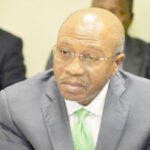I watched, with deep consternation, the television exchanges between Senator Opeyemi Bamidele and Zainab Shamsuna Ahmed the Minister of Finance, on the controversial naira redesign project. Readers that might have also watched the melodrama would recall that it was at the sitting of the Senate Committee on Finance when the senator raised a seemingly innocuous observation about the matter. He said the intention of the Central Bank of Nigeria (CBN) to bring out new naira notes is already having repercussions on its value which had gone down from 740 to 788 against the dollar due perhaps to the rush to exchange the naira to the dollar. He posited that the naira is at risk of falling to 1000 to one dollar by January 2023 the date fixed for full implementation of the policy. The reply by the minister was prompt that she and the Ministry of Finance were not taken along by the CBN but only heard of it from the media.
She said, “Distinguished senators, we were not consulted at the Ministry of Finance by CBN on the planned naira redesigning and cannot comment on it as regards merits or otherwise.’ However, she added that as “a Nigerian privileged to be at the top of Nigeria’s fiscal management, the policy as rolled out at this time, portends serious consequences for the value of the naira to other foreign currencies.” The CBN was quick to counter the minister. In a statement released the same day, the spokesman of the CBN, Osita Nwanisobi, said the management of the CBN had duly sought and obtained the approval of President Buhari in writing to redesign, produce, release and circulate new series of bank notes.
- PDP assembly candidate regains freedom after N3m ransom
- Oyebanji promises to give more recognition to women
This is as shocking as it can be. When the naira is now taking the beating of its life in the foreign exchange arena, it is baffling that the most senior government officials in the finance sector would be caught squabbling and tearing themselves out in the public. Since the initial announcement from the CBN on Wednesday that it had perfected a plan to redesign and roll out new N200, N500 and N1000 notes, effective December 15, many of us have been lost in thought on the reasons adduced. But one was reassured by the main reason advanced by the CBN which seemed cogent enough, that the action was to take control of the currency in circulation because, presently, the bulk of the nation’s currency notes was outside bank vaults which no responsible central bank would allow.
Nevertheless, I had a nagging feeling that the timing is wrong to undertake such a tedious and volatile activity by a government agency that is an important component in the preparations of handing over notes to the incoming administration. When it turned out that the matter had not even been discussed with those who should have had input in the rollout of the programme, I became apprehensive. I recall that at the beginning of the Yar’Adua administration, CBN Governor, Prof Charles Soludo. attempted a similar gambit. At that time, it was a programme of redenominating the naira by knocking off two zeroes copying from what Ghana had successfully done in the period.
However, a combined effort by the ministers of Finance, Dr Shamsudeen Usman, and National Planning, Sanusi Daggash, prevailed over President Umaru Yar’Adua to stop it. It turned out that Soludo’s redenominating the naira was a solo effort that had no input from the other finance stakeholders. To make matters worse, he did not even deem it necessary to obtain presidential approval. To be fair to Soludo, he erroneously believed in the omnipotence of the CBN as contained in the CBN Act 2007 and that he didn’t need presidential approval to do whatever until when the Attorney-General. Michael Aondoakaa. spelled it out to him. Soludo never recovered from his naive interpretation of the CBN Act and as expected was not reappointed to a second term.
Now the CBN Governor, Godwin Emefiele, armed with this knowledge of hindsight thought he could override the system also by going up to the president to obtain approval to jump-start his pet project without clearing with other critical stakeholders in the system. One of Nigeria’s foremost economists, Dr. Suleyman Ndanusa, thinks otherwise. In one of the portals we mutually belong to, Dr. Ndanusa had this to say on the squabbles: “Although the CBN has the power to engage in its activities, such powers are not absolute beyond the financial system. Systemic decisions and programmes, such as currency manipulation in positive or negative genres, may require wider consultations to secure broad or at least key stakeholders’ consensus. The CBN does not operate in autarchy and the governor and the board can’t just wake up and put the country into a frenzy of anxiety. That’s why in saner climes, announcements of policies that have systemic consequences are usually made by the president or higher political authority. The CBN is not a secret service organisation and the currency redesign policy cannot be treated as though it were a sting operation. Even secret services engage or should engage in consultations with key stakeholders.
This lack of symmetrical engagement and cooperation among key stakeholders in government obfuscates and threatens smooth governance and implementation of government policies and programs.”
I am in total agreement with the eminent economist.

 Join Daily Trust WhatsApp Community For Quick Access To News and Happenings Around You.
Join Daily Trust WhatsApp Community For Quick Access To News and Happenings Around You.


